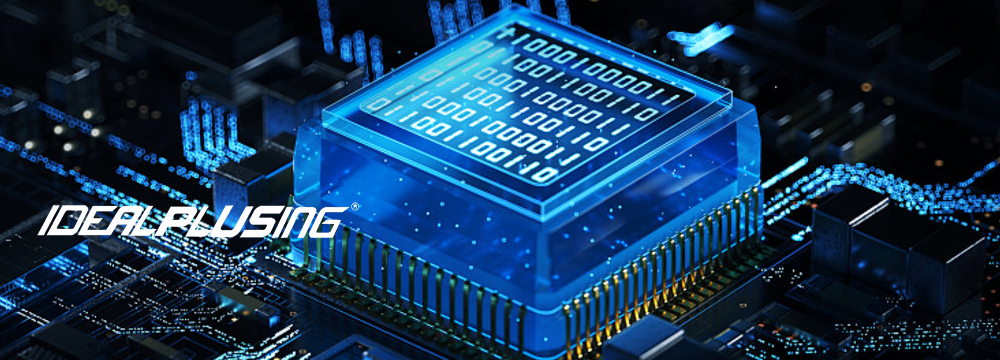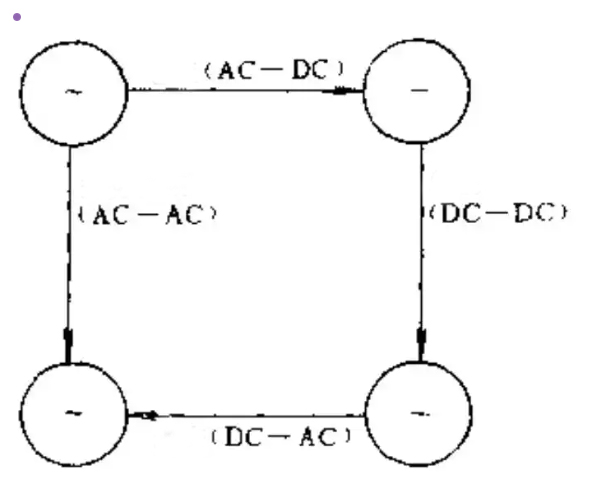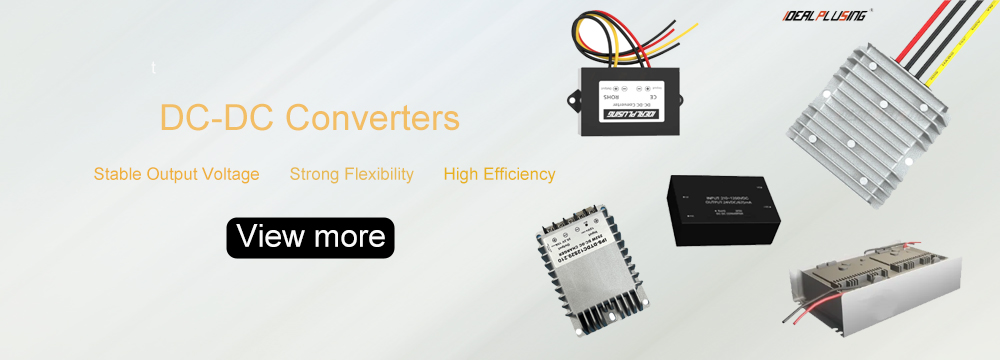In our daily lives, We know some knowledge about alternating current and direct current, but how many relationships do you know between them? Let me briefly introduce four of them.
Below we systematically explain four fundamental conversion relationships between them:
 Chopper circuit
Chopper circuit
It converts direct current into another direct current of fixed voltage or adjustable voltage. It is also called DC-DC converter. The 800KV DC transmission line used this principle.
Rectifier circuit
Converts AC to DC by transforming alternating voltage into regulated direct voltage.This conversion converts AC voltage into DC voltage of a certain voltage.
Cycloconverter
Frequency conversion, also known as cycloconverter.is the process of converting the fixed-frequency AC power of the power grid into frequency-adjustable AC power through power semiconductor circuits. The power devices here are mainly thyristors. It is different from ordinary frequency converters. There is no link of rectifying AC to DC and then inverting to AC. It is an AC-AC conversion structure. What we usually see is AC-DC-AC. However, the AC-AC frequency converter technology is generally used in large power devices. It should be noted that large power devices use direct conversion of AC power into AC power.
The frequency is adjustable, so that high-power motors can be controlled at speed.
Inverter
Inverter refers to the conversion of DC power into AC power, which is composed of inverter bridge, control logic and filter circuit. The most common solar power generation now is to convert DC power into AC power through silicon rectification and transmit it to the grid.

After listening to the explanation and looking at the picture above , we may find it very practical and helpful in explaining the relationship between DC and AC very clearly.
Although the uses of the circuits are different, their transformation process is inseparable from thyristors, IGBTs, and capacitor filter circuits. For such switching power supply circuits, there is still a lot of knowledge we need to master.
The following is a brief introduction to the power converter family :
AC-DC converter: convert AC to DC, a good helper for charging!
The on-board charger (OBC) is it, charging electric vehicles and making the battery fully charged quickly and steadily!
DC-AC converter: convert DC to AC, capable of both motor driving and energy recovery!
The inverter is here, making it easy to realize motor drive and energy recovery, making electric vehicles run more smoothly!
DC-DC converter: a great expert in DC voltage regulation, stepping up and down the voltage for use in low voltage electrical appliances!
Whether it is boosting or lowering the voltage, it can easily handle it and provide stable power supply for low-voltage electrical appliances!
The power converter family, each with its own advantages, contributes together to the stable operation of electric vehicles!






